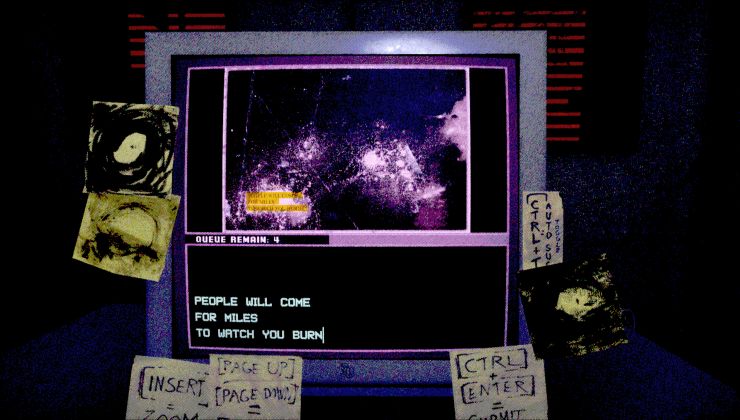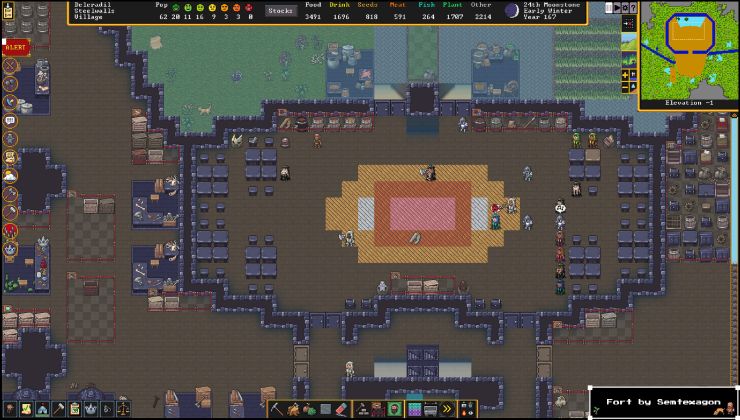This is a pretty nice boost for Vulkan, as the Qt Company has officially joined the ranks of high profile groups now in the Khronos Group.
Really great to see them get in on it right away, hope to see more following.
See the full blog post here.
QuoteToday Khronos has announced a new API called Vulkan which is a low-overhead, cross-platform 3D graphics and compute API for modern GPUs. As we expect that Vulkan will quickly gain strong foothold and driver support we are actively working on implementing the Qt support for Vulkan together with the Qt community, our partners and other members of the Khronos Group.
Really great to see them get in on it right away, hope to see more following.
See the full blog post here.
Some you may have missed, popular articles from the last month:
All posts need to follow our rules. For users logged in: please hit the Report Flag icon on any post that breaks the rules or contains illegal / harmful content. Guest readers can email us for any issues.
So I'm thinking Plasma 5/+ on Vulkan, my eyebrows raise.
0 Likes
So I'm thinking Plasma 5/+ on Vulkan, my eyebrows raise.
And I'm thinking highly parallel rendering in KWin and avoiding all those nasty UI lags during startup. But Martin didn't seem to be impressed or interested in moving in that direction.
https://blog.martin-graesslin.com/blog/2015/08/thoughts-on-vulkan-in-kwin/
Now let’s look at the strength of Vulkan: going closer to the hardware and doing multi-threaded rendering. KWin still performs the rendering in the main GUI thread. Qt tried to do rendering in an off-thread for QtQuick’s scene-graph, in case of KWin we also do that in the main-gui thread. Reworking our compositor to use threading is a lot of work and would also probably improve the performance with OpenGL. Anyway as long as KWin doesn’t support threaded rendering this improvement by Vulkan is rather moot.
I really hope they'll redesign KWin similarly to how Servo is designed for highly parallel rendering logic. Though they'll probably need to rewrite KWin in Rust to do that ;)
Last edited by Shmerl on 16 Feb 2016 at 10:00 pm UTC
0 Likes
It's actually a matter of time KWin guys have. There is mainly Martin working on this kind of stuff, and there currently the Wayland port is still going on.
Changing the rendering structure is one thing, that is a huge refactoring, but even more, all effects/shadows etc. would have to be reimplemented.
Wayland + Vulkan would be like... writing a complete Vulkan based threaded compositing window manager for Wayland from scratch. That alone would take Martin a few years I guess, even with his experience. My bet still goes for that he'll get interested in it and he'll dabble with it once he considers Wayland-Port "stable & done"
Last edited by STiAT on 17 Feb 2016 at 12:12 pm UTC
Changing the rendering structure is one thing, that is a huge refactoring, but even more, all effects/shadows etc. would have to be reimplemented.
Wayland + Vulkan would be like... writing a complete Vulkan based threaded compositing window manager for Wayland from scratch. That alone would take Martin a few years I guess, even with his experience. My bet still goes for that he'll get interested in it and he'll dabble with it once he considers Wayland-Port "stable & done"
Last edited by STiAT on 17 Feb 2016 at 12:12 pm UTC
1 Likes, Who?
Wayland + Vulkan would be like... writing a complete Vulkan based threaded compositing window manager for Wayland from scratch. That alone would take Martin a few years I guess, even with his experience. My bet still goes for that he'll get interested in it and he'll dabble with it once he considers Wayland-Port "stable & done"
I definitely hope he'll get to it at some point.
0 Likes
Don't get your hopes up. The first step would be refactoring for threaded rendering for KWin and implementing it, which is very likely 70% of the work.
Martin correctly says, for the number of calls, I personally think threaded rendering with OGL (ye, thats possible to a certain degree) would help almost the same performance whise as a threaded implementation with Vulkan.
Thats not dissing the amount of stuff kwin does, but it is considerably less than a game engine.
Threaded rendering would help kwin most. Faxt is, this is really complicated stuff, and a lot of work.
I personally consider kwin "good enough", or rather the best composite window manager available. It would benefit in a few cases, but I really doubt you would go "whee" with a changed implementation. Huge issue is still Xorg, not Kwin actually ....
Martin correctly says, for the number of calls, I personally think threaded rendering with OGL (ye, thats possible to a certain degree) would help almost the same performance whise as a threaded implementation with Vulkan.
Thats not dissing the amount of stuff kwin does, but it is considerably less than a game engine.
Threaded rendering would help kwin most. Faxt is, this is really complicated stuff, and a lot of work.
I personally consider kwin "good enough", or rather the best composite window manager available. It would benefit in a few cases, but I really doubt you would go "whee" with a changed implementation. Huge issue is still Xorg, not Kwin actually ....
0 Likes
So we get dependency on hardware accelleration right into our GUI frameworks?
It was bad when windows did this and it will be bad when linux does this.
It was bad when windows did this and it will be bad when linux does this.
0 Likes
That's unavoidable. Compositing will be a requirement for Wayland for instance. You can do compositing all on the CPU - but it's expensive.
0 Likes
Using the GPU is more expensive, power wise. and i have successfully increased my laptop battery life by using a driver that doesn't use the gpu properly. i worry that i'll no longer be able to do this.So we get dependency on hardware accelleration right into our GUI frameworks?
It was bad when windows did this and it will be bad when linux does this.
We get dependency on an API that's intended for running on graphics hardware. You could still make a software renderer for it, but that's just inefficient.
Properly done, hardware accelerated user interfaces are much smoother, allow for more capabilities, and should ultimately need less CPU power to drive. User interfaces have indirectly used hardware acceleration for a long time anyway, just at the X level rather than the framework level.
So there's really no need to worry on this - quite the opposite, we should welcome it.
0 Likes







 How to install GE-Proton on Steam Deck, SteamOS, Linux
How to install GE-Proton on Steam Deck, SteamOS, Linux An idiots guide to setting up Minecraft on Steam Deck / SteamOS with controller support
An idiots guide to setting up Minecraft on Steam Deck / SteamOS with controller support
See more from me